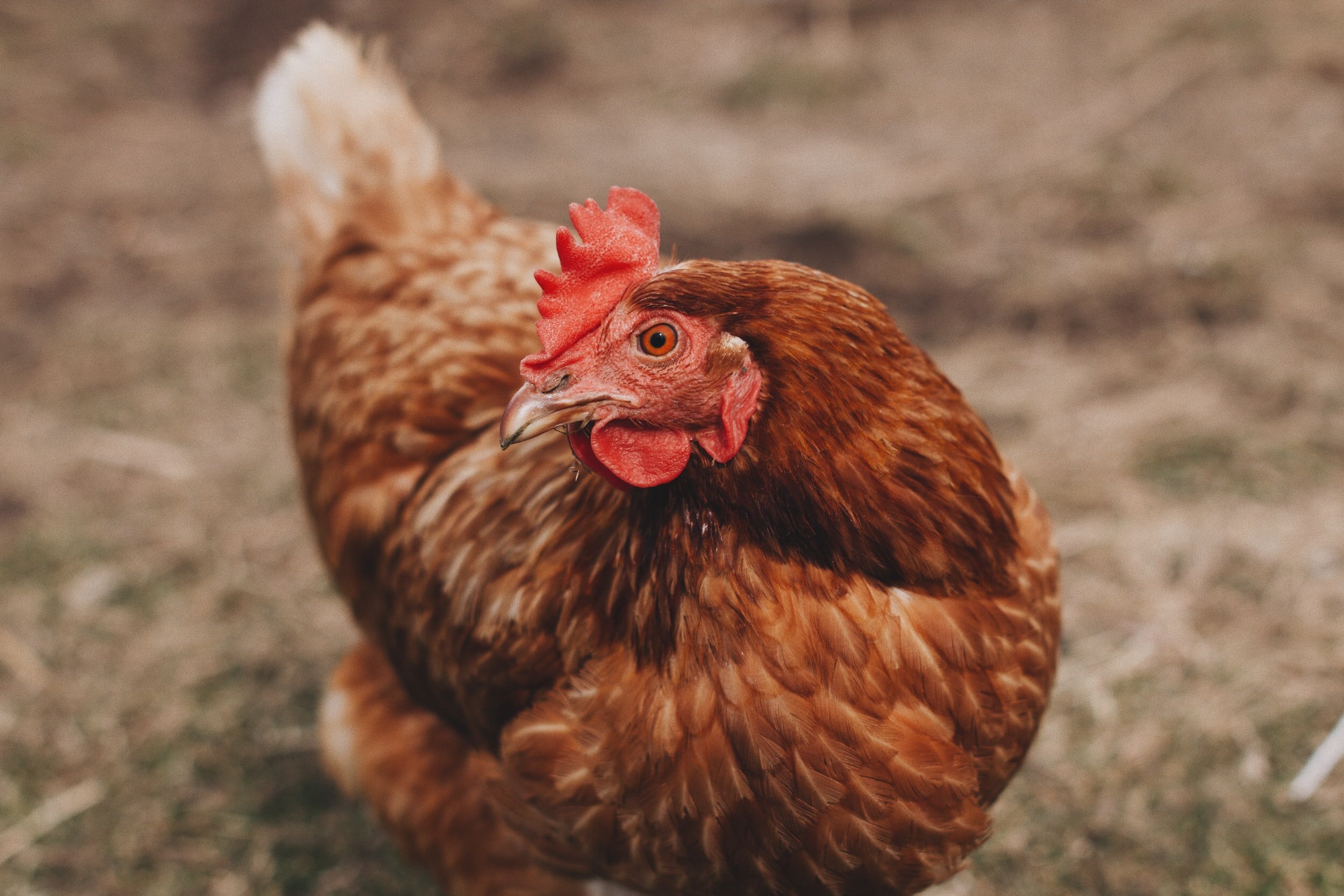
Five reasons to ditch eggs
1. Hens are unique, intelligent individuals
Every chicken has their own unique personality - just like dogs and cats! These differences change the way they interact with each other and respond to situations and stimuli. They are also just as cognitively, emotionally, and socially complex as mammals. They are self-aware and can reason by deduction – something that humans develop by the age of seven!
Rescuers who care for ex-layer hens share how every hen is different, with some absolutely loving attention, cuddles, and pats, while others are more independent and happy to be left alone. Like all animals, chickens are sentient individuals with thoughts, feelings, and emotions, and are worthy of a life worth living.
2. Millions of chickens are suffering
Hens have part of their beaks cut off
A chicken’s beak is a complex sensory organ with numerous nerve endings and highly sensitive mechanoreceptors*. But in Australia, layer hens have up to 30% of their sensitive beak removed (PDF) using an infrared beam, or hot blade. This excruciating procedure is done to prevent the hens from pecking one another when they become frustrated in their cramped, unnatural living conditions. Having the tips of their beaks cut off changes their behaviour for months after the procedure; hens tuck their bill under their wings and lessen the amount of pecking and preening they do.
*Mechanoreceptors are responsible for tactile feedback, which is essential for detecting stimuli, such as touch, pressure, and other sensations.
Hens bodies have been manipulated to overproduce eggs
A chicken in any egg-laying system produces around 300 eggs in 12 months. This is dramatically different from their ancestor, the red jungle fowl, who produce just 12-20 eggs per year. The overproduction of eggs results in a calcium deficiency, and this, coupled with a lack of exercise, causes poor bone and muscle strength. As a result, approximately 56% of battery hens suffer from painful fractures.
Layer hens are killed and replaced every 18 months
Despite chickens having a life expectancy of up to 8 years, hens used by the egg industry are killed at just 18 months old – after a year of laying. Their lives are cut drastically short because their egg production rate slows down and the industry deems them as no longer economically viable to keep. They are gassed to death or loaded onto trucks and sent to a slaughterhouse where their throats will be slit.
Male chicks are killed
Every year around the world, approximately 6 billion male chicks are killed shortly after birth because they are deemed “useless” by the industry. After hatching, the male and female chicks are separated. Males, and any ‘unfit’ females, are macerated alive or gassed to death.
3. All farming systems fail to meet their needs
A growing concern for animal welfare has led to a rise of terms such as “free-range”, “barn laid” and “cage-free”, but sadly, all systems cause suffering.
A life of confinement in battery cages
Around 12 million layer hens are confined to cages, leaving them to suffer both mentally and physically. The cages provide no mental stimulation and deny them their freedom and ability to dust bathe, stretch their wings, build nests, explore, and scratch. Caged hens also suffer from toe pad hyperkeratosis, deep, open sores and swelling, caused by the wire flooring.
Barn-laid, cage-gree and free-range systems are bigger cages
“Cage-free” systems mean that hens are placed inside large sheds or barns, with up to 30,000 others. On “free-range” farms, hens must be provided with access to outdoors during daylight hours – however, due to the cramped conditions, and their poor physical health, it can be difficult for the hens to gain access to outdoors.
In all systems, the floor is not cleaned until the hens are sent to slaughter. This means that hens are living in their own waste for 12 months. As a result, hens often develop “bumblefoot”, a bulbous swelling of the footpad caused by infection.
4. Humans don’t need eggs to be healthy
A whole-food, plant-based diet provides us with all of the necessary nutrients we need to not just survive, but thrive! Studies have also found that eggs are also high in cholesterol and this can have negative effects on our heart and liver.
5. There are plenty of animal-friendly alternatives
The growing vegan movement has discovered a wide range of egg alternatives for all situations, from baking and quiches to scrambles and breakfast egg muffins! From aquafaba (chickpea water) to ground-up flax seeds, banana, and even tofu, there are egg alternatives for every cooking need, all minus the cruelty.





